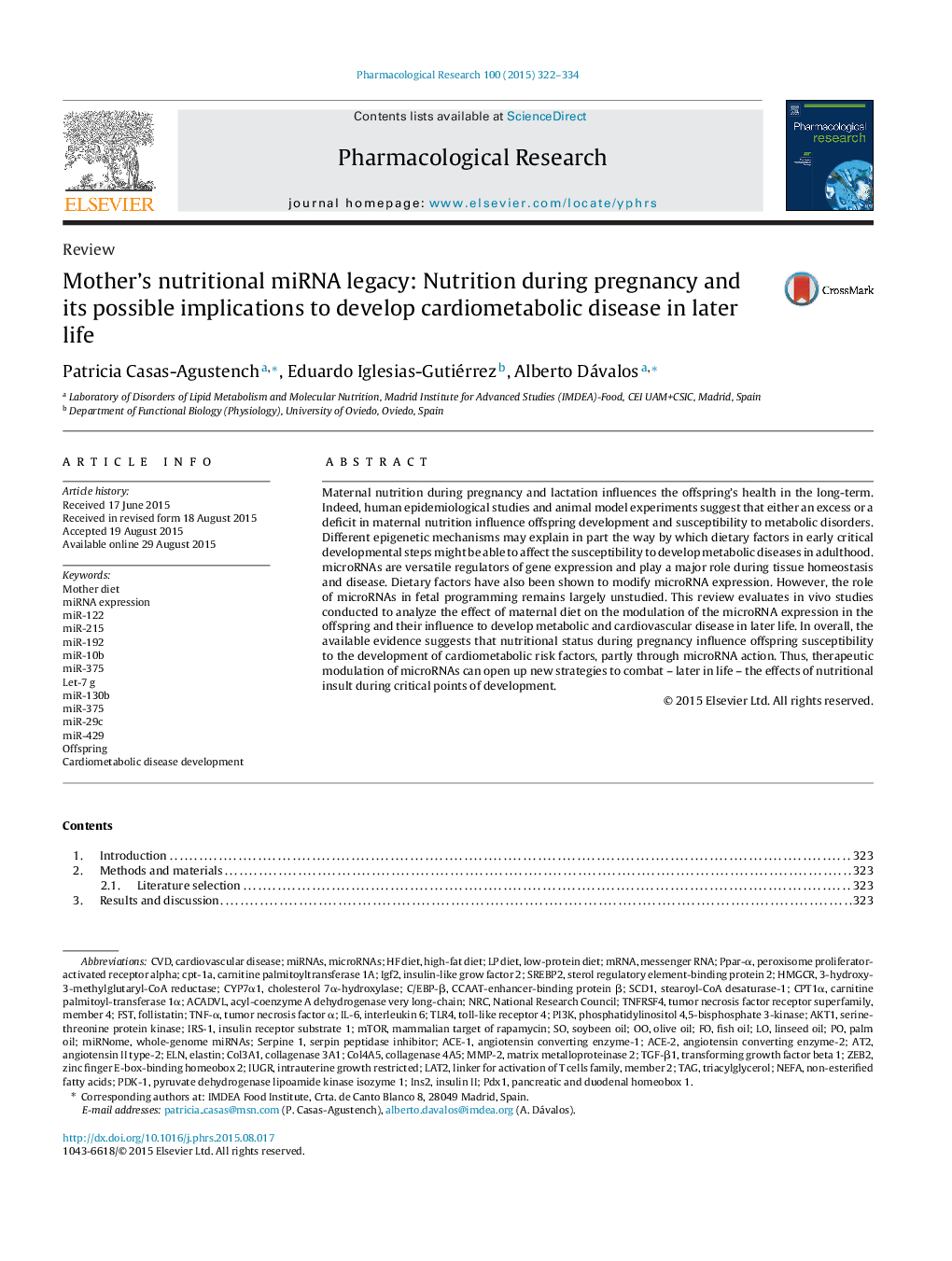| Article ID | Journal | Published Year | Pages | File Type |
|---|---|---|---|---|
| 5843306 | Pharmacological Research | 2015 | 13 Pages |
Maternal nutrition during pregnancy and lactation influences the offspring's health in the long-term. Indeed, human epidemiological studies and animal model experiments suggest that either an excess or a deficit in maternal nutrition influence offspring development and susceptibility to metabolic disorders. Different epigenetic mechanisms may explain in part the way by which dietary factors in early critical developmental steps might be able to affect the susceptibility to develop metabolic diseases in adulthood. microRNAs are versatile regulators of gene expression and play a major role during tissue homeostasis and disease. Dietary factors have also been shown to modify microRNA expression. However, the role of microRNAs in fetal programming remains largely unstudied. This review evaluates in vivo studies conducted to analyze the effect of maternal diet on the modulation of the microRNA expression in the offspring and their influence to develop metabolic and cardiovascular disease in later life. In overall, the available evidence suggests that nutritional status during pregnancy influence offspring susceptibility to the development of cardiometabolic risk factors, partly through microRNA action. Thus, therapeutic modulation of microRNAs can open up new strategies to combat - later in life - the effects of nutritional insult during critical points of development.
Graphical abstractDownload high-res image (140KB)Download full-size image
